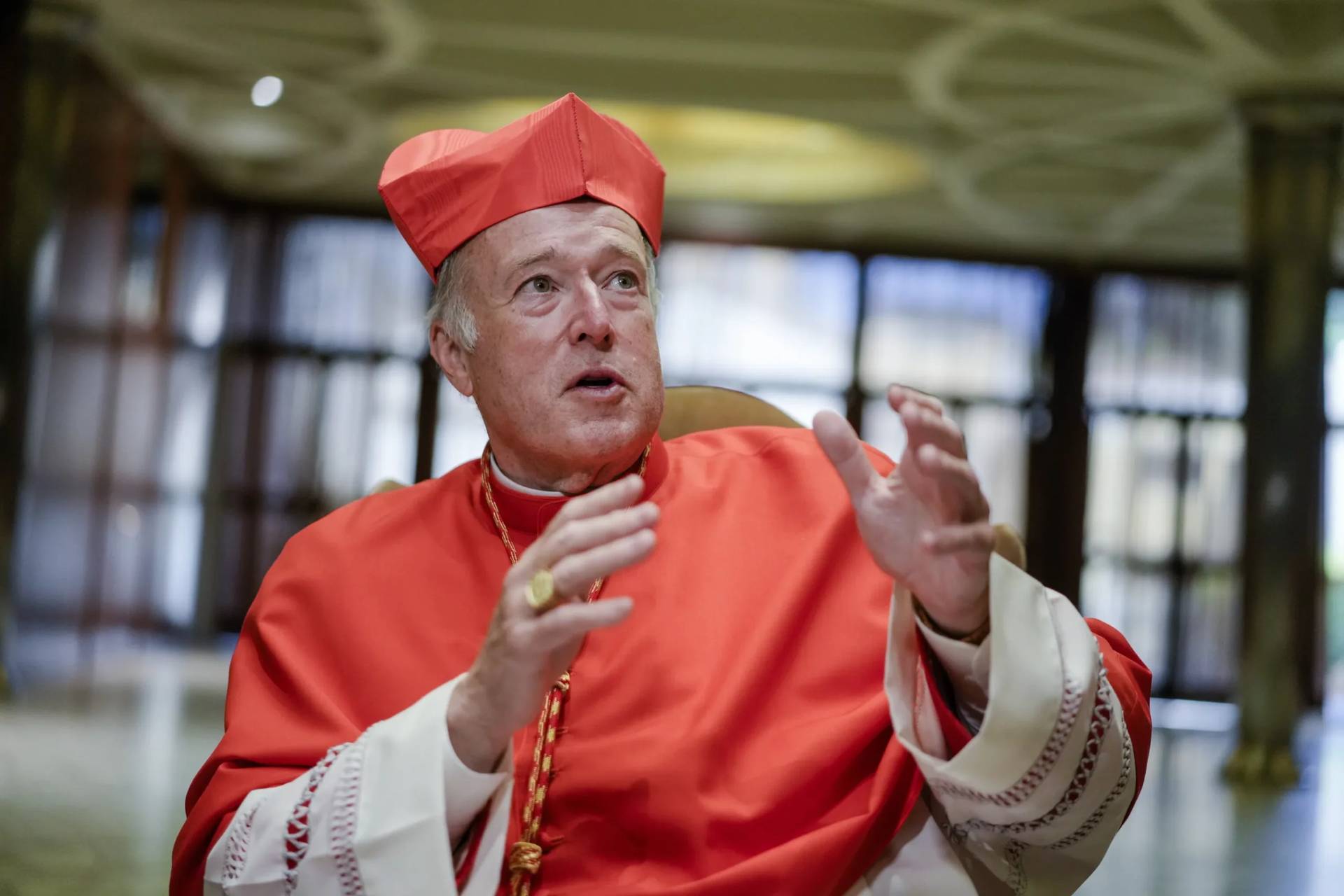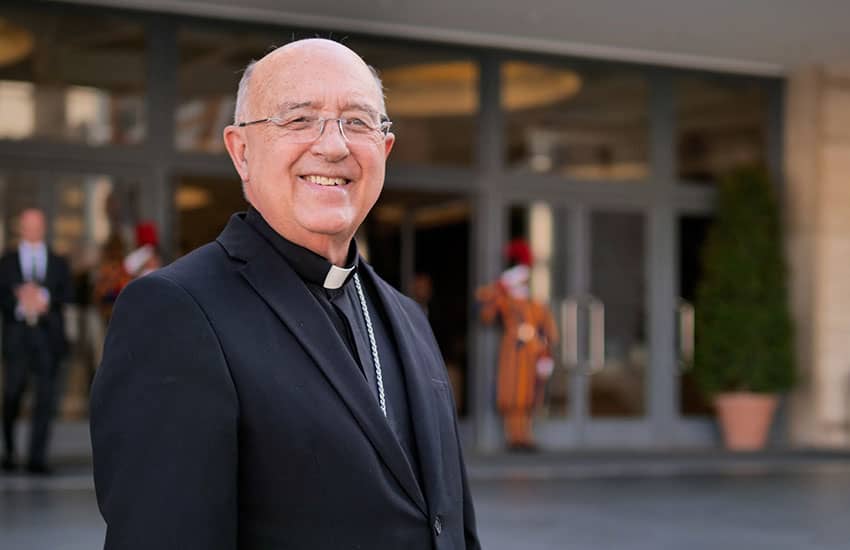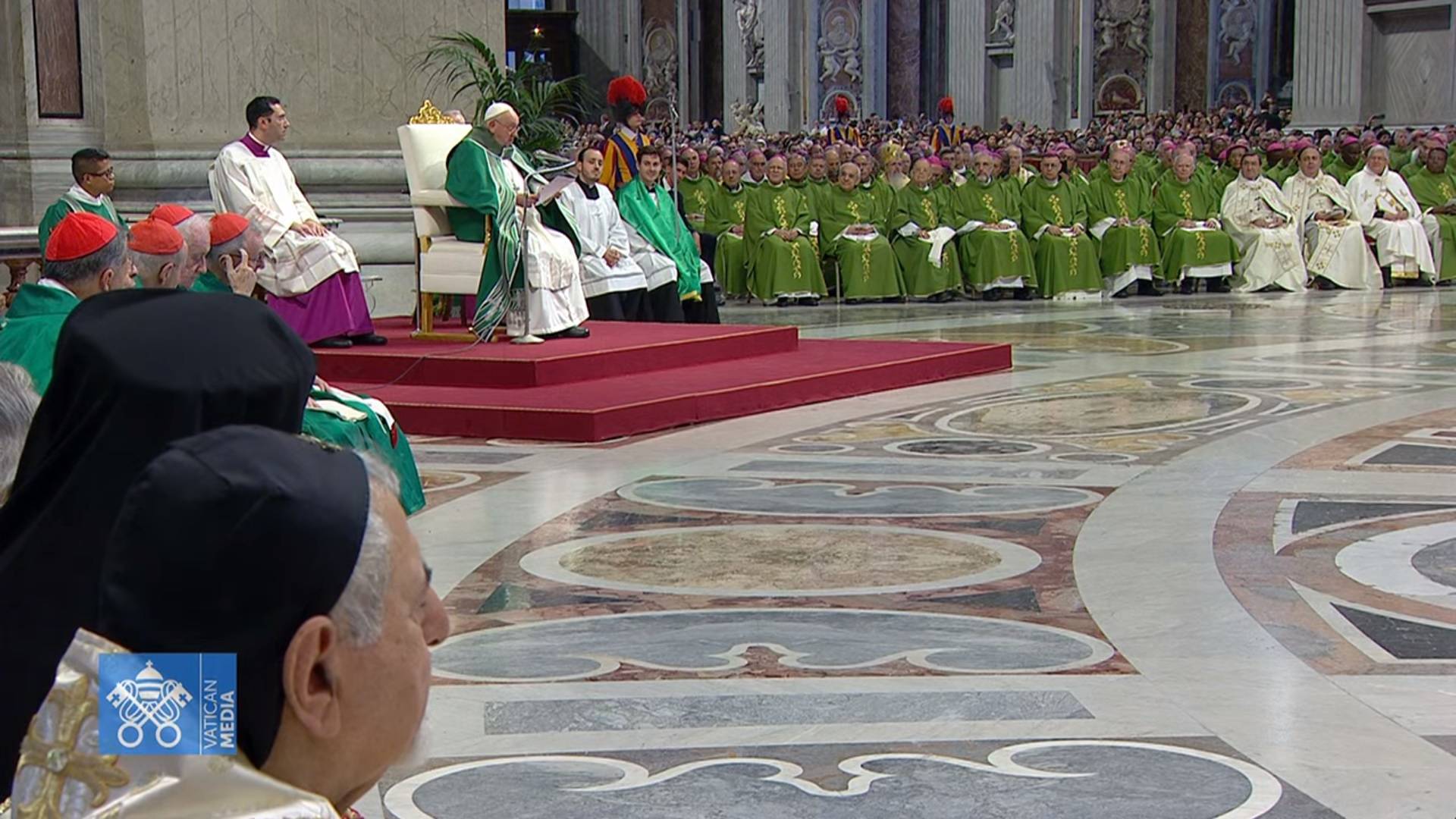ROME – Five cardinals perceived as representing the conservative wing of the Catholic Church have submitted a new set of dubia, or doubts, to Pope Francis regarding his Synod of Bishops on synodality which opens Wednesday, focusing on women’s ordination, the blessing of same-sex unions and the authority of the synod to issue binding teaching.
The new dubia follow a similar set of doubts presented to Francis by a small group of cardinals in 2016 in the wake of his document Amoris Laetitia and its provisions regarding communion for divorced and civilly remarried Catholics.
While submitting dubia about various topics is a routine practice in the Church, they are not usually published. The cardinals who submitted them in 2016 in relation to Amoris Laetitia said they did so because they did not receive a response from Pope Francis.
The signatories to the new dubia are German Cardinal Walter Brandmüller, American Cardinal Raymond Burke, Mexican Cardinal Sandoval Íñiguez, Guinean Cardinal Robert Sarah, and Cardinal Joseph Zen, the former Bishop of Hong Kong.
Both Brandmüller, 94, and Burke, 75, were among the signatories of the dubia presented to Pope Francis in 2016. Burke recently authored the preface to a booklet published by conservative organization Tradition, Family and Property (TFP) calling the synod “schismatic.”
None of the five cardinals who submitted the new set of dubia are among the roughly 400 participants in the synod, which opens Wednesday morning and is scheduled to meet until Oct. 29.
In a “notification to Christ’s faithful” informing the general public of the new dubia, the five cardinals said they submitted them in keeping with their responsibility to assist the pope in light of “various declarations of highly-placed prelates…that are openly contrary to the constant doctrine and discipline of the Church, and that have generated and continue to generate great confusion and the falling into error among the faithful and other persons of good will.”
The cardinals said they sent an original set of dubia on July 10, and received a response from Pope Francis the next day, on July 11. They did not publish the text of the pope’s response, saying it was addressed to them and not meant for public release.
Given that they claimed the pope’s letter “did not follow the practice” of a response to dubia, the cardinals said they re-worded their questions “to elicit a clear response based on the perennial doctrine and discipline of the Church.”
The new version of the dubia was submitted Aug. 21, and, they said, has not yet received a response.
The original version of the dubia focused on the interpretation of divine revelation in light of cultural change; the blessing of same-sex marriages; synodality as a “constitutive element of the Church”; women’s priestly ordination; and on whether repentance is needed in order to receive absolution given the pope’s frequent insistence on the need for pastors to absolve “everyone and always.”
In their second version, the cardinals thanked the pope for his responses and insisted that their decision to submit the dubia “is not out of fear of dialogue with the people of our time, nor of the questions they could ask us about the Gospel of Christ.”
“The concern that moves us is another: We are concerned to see that there are pastors who doubt the ability of the Gospel to transform the hearts of men and end up proposing to them no longer sound doctrine but ‘teachings according to their own likings’,” they wrote.
“We are also concerned that it be understood that God’s mercy does not consist in covering our sins, but is much greater, in that it enables us to respond to His love by keeping His commandments, that is, to convert and believe in the Gospel,” they said.
To this end, they said the pope’s answers did not resolve their doubts, and asked him to respond to five rephrased questions in a yes-or-no format:
- “Is it possible for the Church today to teach doctrines contrary to those she has previously taught in matters of faith and morals, whether by the Pope ex cathedra, or in the definitions of an Ecumenical Council, or in the ordinary universal magisterium of the bishops dispersed throughout the world?”
- “Is it possible that in some circumstances a pastor could bless unions between homosexual persons, thus suggesting that homosexual behavior as such would not be contrary to God’s law and the person’s journey toward God? Linked to this dubium is the need to raise another: Does the teaching upheld by the universal ordinary magisterium, that every sexual act outside of marriage, and in particular homosexual acts, constitutes an objectively grave sin against God’s law, regardless of the circumstances in which it takes place and the intention with which it is carried out, continue to be valid?”
- Will the Synod of Bishops to be held in Rome, and which includes only a chosen representation of pastors and faithful, exercise, in the doctrinal or pastoral matters on which it will be called to express itself, the supreme authority of the church, which belongs exclusively to the Roman Pontiff and, una cum capite suo, to the College of Bishops?”
- Could the Church in the future have the faculty to confer priestly ordination on women, thus contradicting that the exclusive reservation of this sacrament to baptized males belongs to the very substance of the Sacrament of Orders, which the Church cannot change?
- Can a penitent who, while admitting a sin, refuses to make, in any way, the intention not to commit it again, validly receive sacramental absolution?
In their letter to faithful, the cardinals said, “Given the gravity of the matter of the dubia, especially in view of the imminent session of the Synod of Bishops, we judge it our duty to inform you, the faithful, so that you may not be subject to confusion, error, and discouragement.”
Rather, they said faithful must “pray for the universal Church and, in particular, the Roman Pontiff, that the Gospel may be taught ever more clearly and followed ever more faithfully.”
Follow Elise Ann Allen on X: @eliseannallen















